Macron Warns Iran's President On Drone Deliveries To Russia
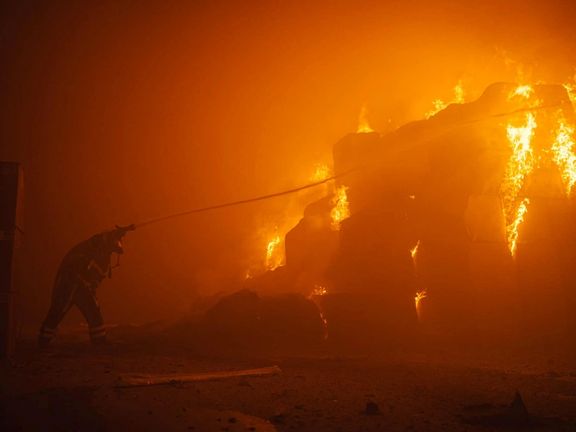
French President Emmanuel Macron warned Iranian counterpart Ebrahim Raisi on Saturday about the consequences of delivering drones to Russia, Macron's office announced.

French President Emmanuel Macron warned Iranian counterpart Ebrahim Raisi on Saturday about the consequences of delivering drones to Russia, Macron's office announced.
In a phone call, Macron urged Iran to "immediately cease" the support it is giving Russia in the war against Ukraine.
Iran has supplied hundreds of its kamikaze Shahed drones to Russia that have been used against military and civilian targets since October last year. The United States and its main NATO allies have repeatedly warned Tehran to stop its close military cooperation with Moscow.
Macron also expressed concerns about the trajectory of the Iranian nuclear program, the statement said.
Britain, France, Germany, the United States and Ukraine say the supply of Iranian-made drones to Russia violates a 2015 UN Security Council resolution enshrining the Iran nuclear deal.
Washington has also said that the resumption of nuclear talks with Tehran that can lead to lifting of economic sanctions partly depends on Iran seizing its weapons supplies to Russia.
The White House said on Friday that Russia appeared to be deepening its defense cooperation with Iran and had received hundreds of one-way attack drones that it is using to strike Ukraine.
The drones serve to supplement Russia’s missile inventory that has been reduced as it attacked civilian infrastructure for months. The cheap drones also are a weapon that can exhaust Ukraine’s air defense missiles, as they are often launched in dozens.
With reporting by Reuters
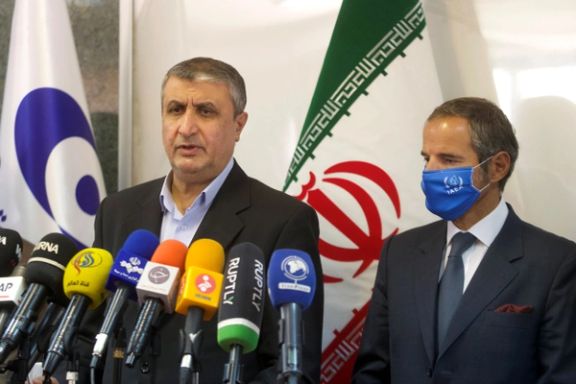
Documents recently obtained by hactivists from the Iranian presidency servers show that the Atomic Energy Organization was allowed to take hectares of land.
The hacktivist group produced documents in May showing that it breached 120 servers of the presidential office, getting access to internal communications, meetings minutes, President Ebrahim Raisi’s online conference platforms and about 1,300 computers inside the offices.
The MEK-affiliated Telegram account Uprising till Overthrow has been releasing the documents on its social media accounts. The latest report shows that 190 hectares of government-controlled land in the southern city of Khorramshahr on the Persian Gulf was given freely to the Atomic Energy Organization of Iran (AEOI).
The head of the Atomic Energy Organization claimed in a letter to First Vice President Mohammad Mokhber that in order to "accelerate the process of exploration and extraction of uranium ore throughout Iran", the government laws should be changed in this regard.
In one of the documents, the security chief of Fordow nuclear plant -- an Iranian underground uranium enrichment facility located 20 miles (32 km) northeast of the Iranian city of Qom – had asked for about 150 hectares of public land to be given to the nuclear facility to increase its security buffer zone as work continued to expand Iran's nuclear capabilities.
Earlier in May, the group Uprising till Overthrow also hacked into the Islamic Republic’s foreign ministry servers, disabling 210 sites and online services and leaking another large batch of documents.
In the new cyberattack, the group is said to have gained access to “tens of thousands confidential documents” but has so far released some of them. The number of the published documents is still so large that analyzing them will take weeks.
The hacker group also published a document that contains information about the request of the Atomic Energy Organization to import 35 vehicles with an engine capacity of more than 2,500 cc.
Hassan Rouhani, President Raisi's predecessor, had banned the import of Completely Built Units (CBUs) in July 2018, allowing only Completely Knocked-Down (CKDs), which are imported in parts rather than assembled.
Any official organization needs to receive foreign currency from the government and permission to import vehicles or machinery, but cars are particularly tightly regulated, because of the cost for the government in hard currencies.
The difficulty with obtaining US dollars or euros for imports became acute after former US President Donald Trump withdrew from the 2015 JCPOA nuclear deal and imposed tough sanctions on Iran’s oil exports, the main source of its revenues.
With French automakers withdrawing from the Iranian market after the imposition of the US sanctions, CKD imports of a variety of Chinese vehicles have flooded the market since then.
The group also claimed that their access to the internal systems of the president’s office was so vast that they sent e-mails to the office’s recipients address list with photos of the leaders of MEK and photos of Iran’s Supreme Leader Ali Khamenei and President Raisi with red crosses over them as well as slogans of “Death to Khamenei” and “Hail to Rajavi”, the current leader of the opposition group.
The president’s office immediately reacted, denying that “the official website of the president” was down due to any attack.
Among the released documents, there is correspondence between the president’s office and the office of the secretary of Iran’s Supreme National Security Council (SNSC) under besmirched chief Ali Shamkhani, confirming rumors that the regime's top security chief was forced out after the President said he had failed to do enough to quash riots, despite killing over 500 civilians and arresting more than 20,000.
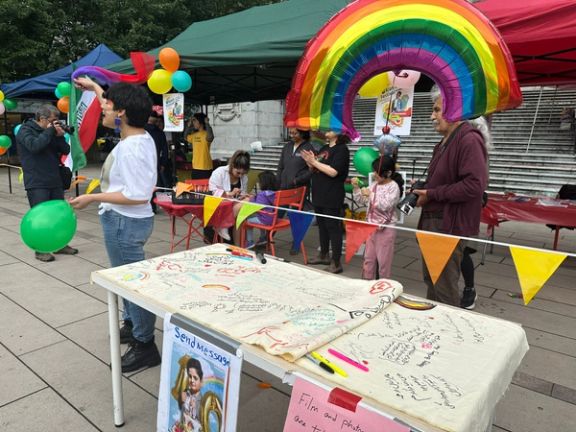
On the birthday of Kian Pirfalak, a 9-year-old child killed during anti-regime protests, and a symbol of regime brutality, Iranians abroad held rallies in several countries.
Kian would have turned 10 on June 11 this year, but on the evening of November 16 last year, the family car carrying Kian, his parents, and three-year-old brother Radin was targeted by plainclothesmen in Izeh, a town of around 100,000 in the southwestern oil-rich Khuzestan Province.
Kian’s father was also seriously wounded in the shooting and paralyzed. Authorities claim the family car was attacked by “terrorists”.
The videos received by Iran International show Iranians living in Austria celebrating Kian's birthday by holding a program in Graz on Saturday.
In Sweden, the Iranian diaspora held rallies in Stockholm and Gothenburg to celebrate the birthday of the murdered child.
Similar events were also staged in Copenhagen, Hamburg, Washington, Montreal, Brisbane and several other cities.
On Friday, a group of Iranians living in the UK also marked Kian's birthday by gathering outside the Foreign Office. They urged the British government to fully sanction Iran’s Revolutionary Guard, the IRGC, that leads all repressive military and paramilitary forces in Iran.
Earlier, activists had issued several calls to hold global gatherings on the anniversary of Kian Pirfalak's birthday.
Social media users welcomed Kian’s birthday with the hashtag "rememberingkian" and publishing his photos.
Mahmonir Molaei-Rad, Kian's mother, previously wrote on her Instagram that the security forces raided the house of one of their friends taking away "all the items they had prepared to celebrate Kian's birthday."
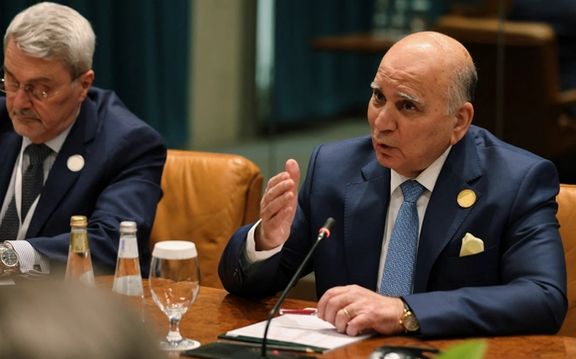
A senior Iraqi official has confirmed that his country has acquired a sanctions waiver from the US to pay $2.7 billion of its debt for gas and electricity to Iran.
Speaking to Reuters, the official who spoke on condition of anonymity because he was not authorized to speak to the media, said Iraqi Foreign Minister Fuad Hussein was given the clearance during a meeting with US Secretary of State Antony Blinken on the sidelines of the Riyadh Conference on Thursday.
The Iraqi foreign ministry source said that the funds will be transferred through the Commercial Bank of Iraq and confirmed that the money will be used for Iranian pilgrims' expenses and foodstuffs imported by Iran.
Iranian officials have claimed that the money in Iraqi banks could be as much as $10 billion or more. Yahya Al-e Eshaq, the head of the Iran-Iraq chamber of commerce, was quoted as saying by the local media Saturday that the Iraqi debt is between $7 to $8 billion but only $2.7b has been released and that part of the funds has been earmarked for pilgrims and another portion has been used to purchase basic goods.
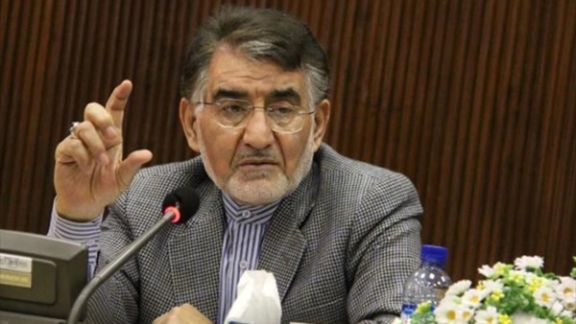
According to the semi-official Iranian Students News Agency (ISNA), Al-e Eshaq also told the media that the payment of the funds to Iran will have a positive impact on Iranian markets, including the foreign exchange and basic goods markets, probably stabilizing them.
Iraq which is heavily dependent on gas and electricity imports from Iran has been in arrears in its payments to Iran since the US government under President Donald Trump imposed banking sanctions on Tehran in 2018, that can target third countries for transferring dollars to Iran.
In late May, a source with direct knowledge of secret talks between Tehran and Washington on the release of Tehran's frozen assets in Iraq and South Korea had told Iran International that the negotiations could result in a deal soon but the implementation of the deal could take time.
South Korea also holds $7 billion of Iran's funds, which it owes for importing Iranian oil prior to full US sanctions imposed in May 2019.
Iran is expected to show more flexibility on issues related to its nuclear program in exchange for the release of its funds in Iraq, and free hostages, presumably US citizens ,but probably also other western hostages with dual nationality, in exchange for its assets in South Korea, the source said.
After 18 months of talks to revive the JCPOA came to a halt in September, the Biden administration has been saying it is no longer focused on the issue and has listed a few conditions Iran must meet, nicknamed by the media as JCPOA Plus.
Iraqi Foreign Ministry spokesperson Ahmed Al-Sahhaf said in a brief statement that Hussein had made progress "regarding financial dues between Iraq and Iran during his discussion with his American counterpart in Riyadh" when asked about the funds.
With Reporting by Reuters
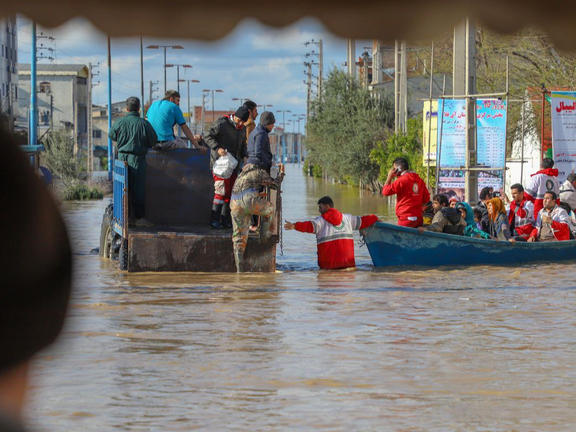
Iran has experienced severe weather over the past few days, causing fatalities, flooding, and damage to livestock and infrastructure.
According to the country’s Red Crescent Society 13 provinces were affected by the floods including Esfahan, Tehran, Semnan, Zanjan, Qazvin, and East Azerbaijan.
During the deluge in Ardestan, Esfahan Province, at least four people lost their lives, nine others were injured and two went missing. A total of 15 houses were destroyed.
In the city of Ahar, located in East Azerbaijan Province, heavy rain and flash floods resulted in one death and two injuries while the floods in Shahrud in Semnan Province inflicted severe damage to homes and other infrastructure. Such heavy floods at this time of the year is rare in Iran.
Several rescue operations were underway in Firuzkuh county near Tehran by the Red Crescent. As reported by Tasnim news agency, homes were damaged, and livestock lost in the area.
Meanwhile, strong winds damaged houses and broke the trees in the capital Tehran which led to the injury of approximately 25 people.
Several livestock were killed due to flash flooding in Zarandieh county near Tehran, while a person died as lightning struck him in Arak, according to Tasnim news agency.
Floods also occurred in the country in late May this year, causing four deaths in Faruj and Shirvan counties in North Khorasan province.
The massive flood in Iran took the lives of 62 people last year and dozens of others went missing. Indian sub-continent summer monsoons usually bring rain showers to Iran’s arid plateau, but every few decades the impact becomes more intense and causes flooding.
Partly due to the arid nature of the land and partly because of neglect in urban planning, even a modestly strong storm leads to deadly floods in Iran.
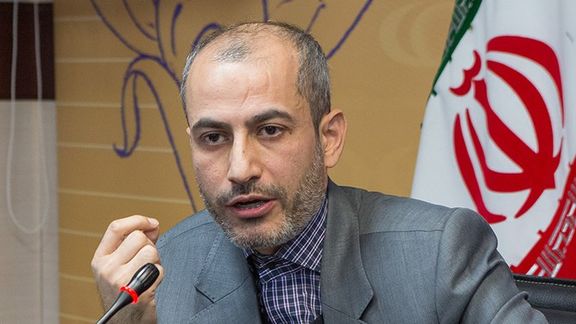
A conservative Iranian lawmaker has confirmed recent reports that Washington held direct talks with Tehran, although he said there will be no deal in the near future.
“Despite some negotiations in New York, there is no impending agreement soon because of US obstructions,” Mojataba Tavangar tweeted on Saturday.
Tavangar is a ‘principlist’ Iranian politician, which means he can be considered a hardliner, although on some issues he has exhibited flexibility in the past. Unlike many other hardliners dominating the parliament, Tavangar is a more educated politician having spent years as a researcher.
“America is trying to get more concessions from Iran in nuclear matters, in exchange for releasing frozen funds, a policy violating the law and in contradiction to Iran’s interests,” Tavangar added.
Iran International reported in January that US special envoy for Iran, Robert Malley had held three meetings with Iran’s UN ambassador Saeed Iravani in New York in the closing weeks of 2022. The State Department never denied this report, and said Washington had many channels to relay messages to Tehran.
The reports of more meetings resurfaced in June, when the Financial Times and others reported that meetings have taken place in New York and perhaps in Oman, which has long acted as a mediator between Tehran and Washington.
The State Department did not directly deny the latest reports either. Asked about the media reports, deputy spokesperson Vedant Patel said, “I don’t have anything to announce on this front.”
He added, “As you’ve heard me say previously, we have the means to communicate with Iran and deliver messages to them that are in America’s interest to do so. We’re not going to detail the contents of those messages or the means of those deliveries. I don’t have anything additional to add there.” He refused to comment further.
The Iranian lawmaker Tavangar in his tweet also claimed that the United States is pushing Iran toward direct talks, and even regarding American prisoners (hostages) in Iran is not negotiating seriously. He described media reports about secret talks and progress toward a deal as “media hype” saying that Washington’s goal is to highlight Iran’s economic problems and inflict “a shock” on the market.
Tavangar’s statements could well be an indirect message by the regime to its domestic audience, as the news about a possible deal has led to some premature hopes. The Iranian rial has risen against the US dollar in the past week, and any negative diplomatic news could push the battered currency toward a steep fall.
It is worth noting that many media outlets in Tehran, under tight government control, widely reported on Tavangar’s tweet.
Iran International also reported May 27, that talks on the release of Tehran’s frozen assets could result in a deal soon, based on a source with direct knowledge of the talks. Apparently, the talks were focused on funds held in Iraq and South Korea. The money in Iraqi banks could be as much as $10 billion or more by most recent estimates mentioned by Iranian officials. Iraq imports natural gas and electricity from Iran but is barred by US sanctions to make dollar transfers to Tehran.
The funds in South Korea could be exchanged for the release of three US dual nationals held hostage in Iran.
ILNA news website in Tehran reported Saturday that Secretary of State Antony Blinken discussed the issue of the funds blocked in Iraq with his Iraqi counterpart during his recent visit to Saudi Arabia. Apparently Baghdad is urging Washington to find a solution, the website said.